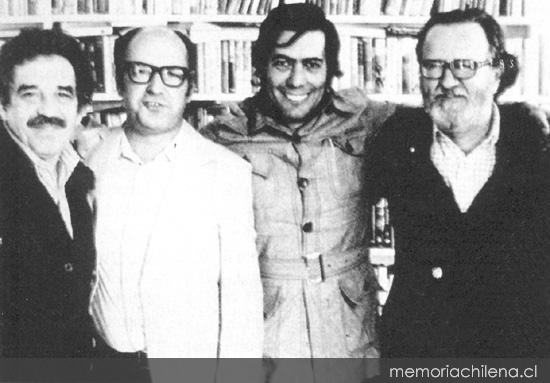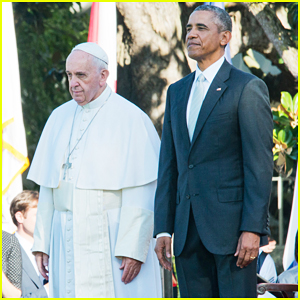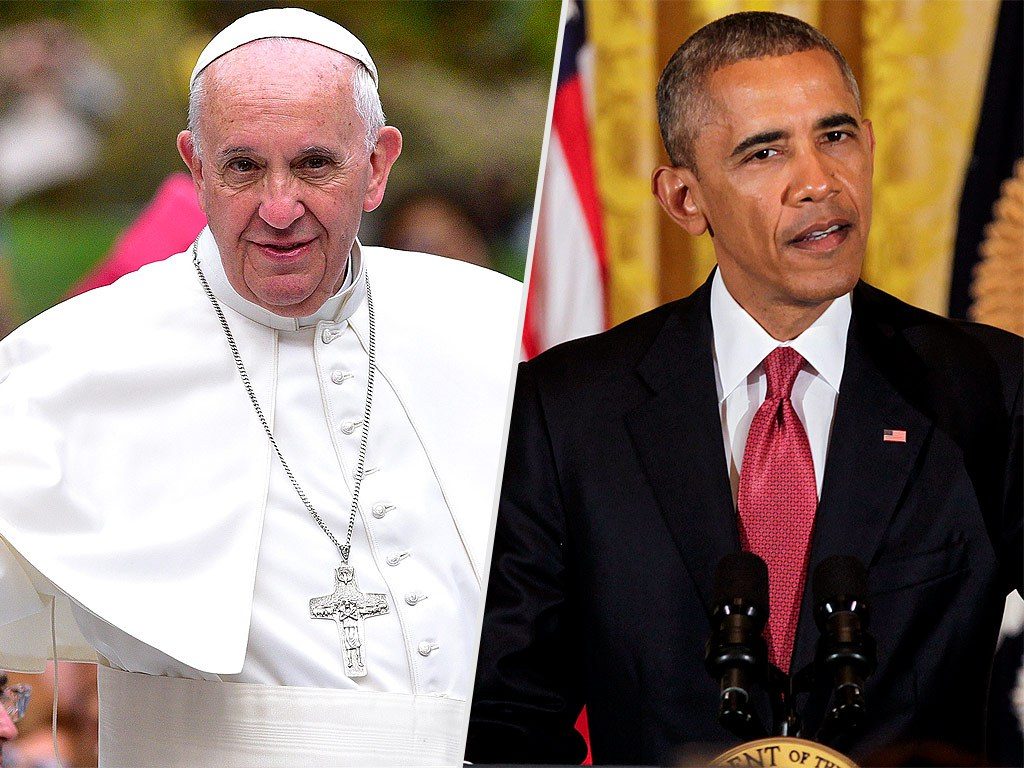“When Fidel came to power, Cuba was an underdeveloped country ruled by a rough dictatorship and full of hurdles and injustices, but it was united, its economy could be compared to that of the countries around it and their contributions in culture, art and literary creation were Interesting What Fidel gave to his death is a nation that has lost all intellectual and human freedom, equally poor but unequal in its leading nomenclature … And, above all, a country divided in two: the Cuba of the interior and that of exile.
.. Three years ago, at the Book Fair there, a young man approached me and told me that he was the son of Silvio Rodríguez. He also sings (rap). They call him Silvito the free! He told me that sometimes he meets his father, despite the differences. And that brings me to the main point, which is the need for reconciliation between those two countries in which Fidel divided Cuba. That is the fundamental thing.
… both Obama and the Pope were too soft. They did not show enough warmth to exile. Because, in my opinion, what should be the great political, cultural and even religious objective with regard to Cuba is to unite the country again. The wound is deep. Why not, when the government calls worms to expatriates! Reconciliation is urgent. A part of Spain lived a fierce exile, but there was reconciliation. It is now announced that the King and the President will travel to the island. Let’s see. Because I believe that the western rulers should not go there saying they can not visit the dissidents. If they do not see that other Cuba, their trip will be very partial; Will be unilateral.
The Post-Fidelismo begins with Raul, who may be the beginning of change and seems capable of making a more efficient economy. But I’ve always said that it’s harder to get out of a left-wing dictatorship than a right-wing dictatorship. Of the Pinochet we left when the companies decided that he no longer needed them. In Cuba there are no capitalist entrepreneurs.
Question: Why did the left of the world and even its intellectuals have defended Castroism at its worst despite its obvious defects, to put it mildly?
When Fidel came to power, these sectors were disappointed with the Soviet Union and saw the Cuban revolution as something fresh and different. Afterwards, it seems that they did not realize that Fidel took part in the USSR even with the invasion of Czechoslovakia. I do not know … The intellectuals of my time just fail. Some more than others.
Well, together we failed”.
AUTHOR:  Jorge Edwards, writer, essayist and former Chilean diplomat. Expelled from Cuba when he tried to open the diplomatic representation of the Allende government – it was the first testimony in which an intellectual of the Latin American left denounced urbi et orbi, without lukewarmness, the mistakes and excesses of Fidel Castro and the Cuban revolution, then almost sacrosanct For the parties of ideology related to Castroism. Now, once the leader and dictator of the Caribbean died, the intellectual and former Chilean diplomat actualizes that criticism in the first chapters of infiltrated Prosas (Kingdom of Cordelia).
Jorge Edwards, writer, essayist and former Chilean diplomat. Expelled from Cuba when he tried to open the diplomatic representation of the Allende government – it was the first testimony in which an intellectual of the Latin American left denounced urbi et orbi, without lukewarmness, the mistakes and excesses of Fidel Castro and the Cuban revolution, then almost sacrosanct For the parties of ideology related to Castroism. Now, once the leader and dictator of the Caribbean died, the intellectual and former Chilean diplomat actualizes that criticism in the first chapters of infiltrated Prosas (Kingdom of Cordelia).
(Opinión) “Obama y el Papa Francisco fueron blandos con el Gobierno Cubano”.
“Cuando Fidel llegó al poder, Cuba era un país subdesarrollado regido por una dictadura tosca y lleno de lacras e injusticias, pero estaba unido, su economía podía compararse a la de los países de su entorno y sus aportaciones en cultura, arte y creación literaria eran interesantes. Lo que Fidel entregó a su muerte es una nación que ha perdido toda libertad intelectual y humana, igualitariamente pobre pero desigual en su nomenclatura dirigente… Y, sobre todo, un país dividido en dos: la Cuba del interior y la del exilio.
.. Hace tres años, en la Feria del Libro de allá, se me acercó un joven y me contó que era el hijo de Silvio Rodríguez. También canta (rap). ¡Le llaman Silvito el libre! Me contó que a veces se encuentra con su padre, pese a las diferencias. Y eso me trae al punto principal, que es la necesidad de reconciliación entre esos dos países en que Fidel dividió Cuba. Eso es lo fundamental.
..tanto Obama como el Papa fueron demasiado blandos. No mostraron la suficiente calidez al exilio. Porque, a mi juicio, lo que tendría que ser el gran objetivo político, cultural e incluso religioso respecto a Cuba es unir de nuevo el país. La herida es profunda. ¡Cómo no, cuando el Gobierno llama gusanos a los expatriados! Urge la reconciliación. Una parte de España vivió un exilio feroz, pero hubo reconciliación. ..Ahora se anuncia que viajarán a la isla el Rey y el presidente. A ver. Porque yo creo que los gobernantes occidentales no deberían ir allí diciendo que no pueden visitar a los disidentes. Si no ven a esa otra Cuba, su viaje será muy parcial; será unilateral.
El post fidelismo empieza con Raúl, que puede ser el inicio del cambio y parece capaz de hacer una economía más eficiente. Pero siempre dije que es más difícil salir de una dictadura de izquierdas que de una de derechas. De la de Pinochet salimos cuando las empresas decidieron que él ya no les hacía falta. En Cuba no hay empresarios capitalistas.
Pregunta: ¿Por qué la izquierda de todo el mundo e incluso sus intelectuales han defendido a ultranza el castrismo pese a sus evidentes defectos, por decirlo suavemente?

Escritores latinoamericanos, Gabriel García Márquez, Jorge Edwards, Mario Vargas Llosa y José Donoso
Cuando Fidel llegó al poder, esos sectores estaban decepcionados con la Unión Soviética y vieron la revolución cubana como algo fresco y diferente. Después, parece que no se dieron cuenta de que Fidel tomó partido por la URSS incluso con la invasión de Checoslovaquia. No sé… Los intelectuales de mi tiempo sencillamente fallamos. Unos más que otros.
Bueno, en conjunto fallamos”.
AUTOR: Jorge Edwards, escritor, ensayista y ex diplomático Chileno. Expulsado de Cuba cuando trataba de abrir la representación diplomática del Gobierno de Allende– constituyó el primer testimonio en que un intelectual de la izquierda latinoamericana denunciaba urbi et orbi, sin tibieza, los errores y excesos de Fidel Castro y la revolución cubana, entonces casi sacrosanta para los partidos de ideología afín al castrismo. Ahora, una vez fallecido el líder y dictador caribeño, el intelectual y ex diplomático chileno actualiza esa crítica en los primeros capítulos de Prosas infiltradas ( Reino de Cordelia).
Jorge Edwards, escritor, ensayista y ex diplomático Chileno. Expulsado de Cuba cuando trataba de abrir la representación diplomática del Gobierno de Allende– constituyó el primer testimonio en que un intelectual de la izquierda latinoamericana denunciaba urbi et orbi, sin tibieza, los errores y excesos de Fidel Castro y la revolución cubana, entonces casi sacrosanta para los partidos de ideología afín al castrismo. Ahora, una vez fallecido el líder y dictador caribeño, el intelectual y ex diplomático chileno actualiza esa crítica en los primeros capítulos de Prosas infiltradas ( Reino de Cordelia).
Agencies/La Vanguardia, Spain/Fernando García/Internet Photos/ Arnoldo Varona/ TheCubanHistory.com
THE CUBAN HISTORY, HOLLYWOOD.








